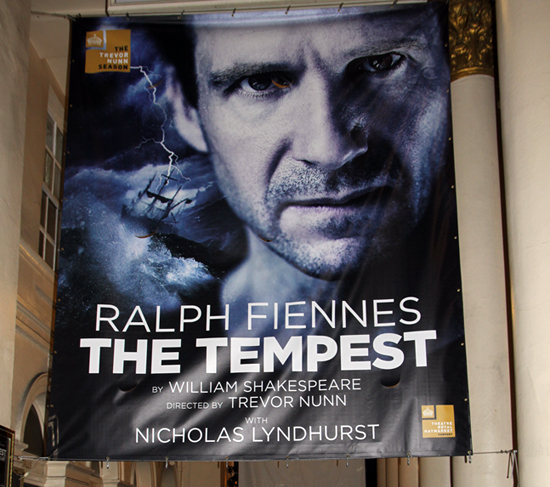
Two hours ago, I was in a small jam-packed London theater, joining in on a much-deserved standing ovation to the cast of Shakespeare’s The Tempest. Some of the finest Shakespearean actors, most notably Ralph Fiennes, indulged us tonight with an unforgettably moving performance.
Pleasure, sadness, delight and joy, smiles and tears, deep reflection and thrilling sensations, these are only some of the emotions that come alive as you bask in the awe of a fine actor bringing to life a character from a 400-year old play. The overall credit, of course, goes to the brilliant mastermind of all literature, William Shakespeare himself. Prolific and exceptional in every way, his works enriched our lives eternally. Centuries later, the simple yet true life lessons in his work applies to our lives more powerfully than anything from the world of pop culture and contemporary literature.
Travel puts a disruption into routine and yet we do it and love it probably for this very reason but alas, it put quite a disruption into the writing of this blog post. Our time in London was short and fleeting but even on a third visit, you can still see a vibrant city come alive each time as though for the first time.
Returning to familiar grounds has its own nostalgic elements. Revisiting the same place at another time and in another season combines some of the comfort of the old with the pending excitement of the new. Somewhere between remembering old memories and creating new ones, you feel the passage of time with unkind sharpness and what can you can do in the face of it but to live every single minute with purpose and intent from the heart? I find a new city and a new country in the same familiar grounds. It continues to make the return trips worth my while.
The new in London was the summer breeze instead of the winter chill, sundown at 8 in the evening instead of of 4 in the afternoon, visiting friends at their homes, doing some exclusive window shopping, exploring outside of London by visiting Oxford and Bath, and enjoying the magnificent exclusive luxury at The Savoy. The old and familiar was returning to Caffé Nero for hubby’s cup-o-joe, revisiting the Persian place for tea and appetizers, gazing at The Big Ben, The London Eye and returning for another admiration of Leonardo’s magnificent Virgin of the Rocks at The National Gallery (although the one in the Louvre is my favorite). The fusion of the old and new memories makes each trip unique.
It is now two days after the play, and it will be even longer before this post makes it online, and even if time has lessened the sensations from the aftermath of The Tempest, it has only strengthened the play’s powerful message in my mind.
In the play, Prospero, the exiled Duke of Milan, has been betrayed, wronged and cast away to a far away place, with the clear hope of not surviving for long. When it comes the time to avenge himself 14 years later, Prospero knows that the powers bestowed on him by the Shakespearean angels would make for a much sweeter revenge except that he stops short and re-examines his moves. He wields his power on his angels, asking us to raise our imagination and persuading us to follow along on his plans but in the very end, it is forgiveness that saves Prospero.
In asking for forgiveness and making peace with everyone around him, Prospero prays that his life’s work and what he left behind continues to be worthy of remembering, and in this aspect, the play is autobiographical. Shakespeare was reflecting on his own life and his own worthiness as a contributor to society and humanity through the character of Prospero (as per several literary sources that I researched).
And this, I find it fascinating and jaw-dropping at the same time. How can a magnanimous mind such as William Shakespeare pray and hope that his prolific life, his magnificent and unmatched contributions to literature, culture, and in essence, humanity were worthy of remembering? What questions am I now inspired to ask myself – and answer – every single day?
Well, these are some of those questions. For you. For me. For us. It is the least we can do to follow in the footsteps of a brilliant mind, to show that not only do we deeply appreciate the Bard’s timeless works, he inspires us to live a regret-free life.
If that is how the Bard himself approached his life’s work, how should we begin to approach ours?
If he defined contribution on such grand terms in his time, what should we do to leave behind a lasting imprint in the world now?
And how do we structure and discipline our actions in such a way that we see these visions through?
 I am Farnoosh, the founder of Prolific Living. So glad you are here. My mission is to empower you to unblock your creative genius to live your dream life.
I am Farnoosh, the founder of Prolific Living. So glad you are here. My mission is to empower you to unblock your creative genius to live your dream life.